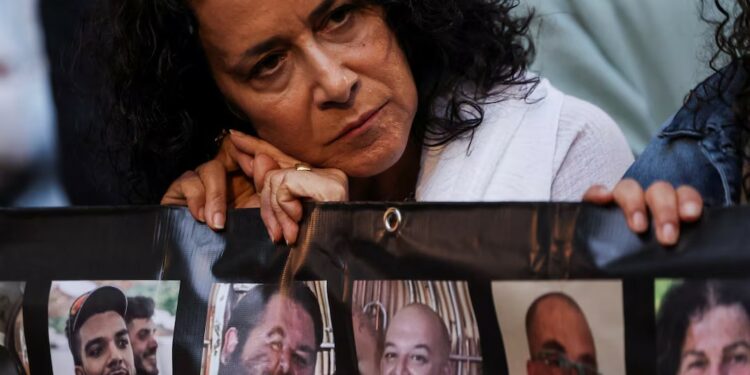By Lucy Adautin
On Monday, Israelis commemorated the first anniversary of the devastating Hamas assault that set off a conflict with global repercussions and the potential to spark a broader Middle East war.
Memorials and demonstrations were planned in Jerusalem and southern Israel, beginning around 6:29 a.m., the exact time Hamas militants fired rockets into Israel to launch the attack on October 7 of last year.
The assault claimed approximately 1,200 lives and saw around 250 hostages taken to Gaza, according to Israeli reports.
With the anniversary of the deadly October 7, 2023, attack looming, which marked the worst violence in the longstanding Israeli-Palestinian conflict, security forces across the country were on high alert, the military and police announced, anticipating potential Palestinian attacks.
The Hamas attack on Israeli communities around Gaza and Israel’s relentless campaign in response have destabilised the Middle East while the scale of the killing and destruction have horrified people worldwide.
Outside Israel, demonstrations are expected around the world against its offensive in the Gaza Strip which has laid waste the densely populated coastal enclave, killed almost 42,000 people, according to Palestinian health authorities, and displaced most of the 2.3 million population.
For Israel, the surprise assault by the Palestinian Islamist group was one of the worst security failures for a country that prides itself on a strong, sophisticated military.
The attack led to Israel’s single deadliest day, shattered many citizens’ sense of security and sent their faith in its leaders to new lows.
Most of the victims were civilians, including women, children, and the elderly, killed in their homes, on the streets, and at an open-air music festival, along with soldiers stationed at army bases near the Gaza border.
In Gaza, 101 hostages remain as Israeli forces continue their efforts to dismantle Hamas’ rule in the enclave and destroy its military capabilities.
However, the conflict has increasingly shifted north toward Lebanon, where Israeli forces have been exchanging fire with Hezbollah. The Iranian-backed group launched a missile attack in support of Hamas on October 8.
What began as limited daily exchanges has now escalated into heavy bombardments on Hezbollah’s stronghold in Beirut and a ground operation targeting border villages. This effort aims to eliminate Hezbollah fighters in the area and allow the tens of thousands of Israelis evacuated from northern homes to return.
Israel’s offensive, which has claimed over 1,000 lives in the past two weeks, has sparked a mass exodus from southern Lebanon, displacing more than a million people.
In recent months, a string of Israeli assassinations targeting Hezbollah and Hamas leaders, along with a sophisticated strike on Hezbollah’s communications using pagers and radios, has helped restore some sense of security for Israelis.
However, these actions have also triggered unprecedented missile attacks from Iran, heightening concerns of a broader regional conflict with a formidable adversary. While Israel has yet to retaliate against the second Iranian missile barrage on October 1, it has vowed a strong response.

































